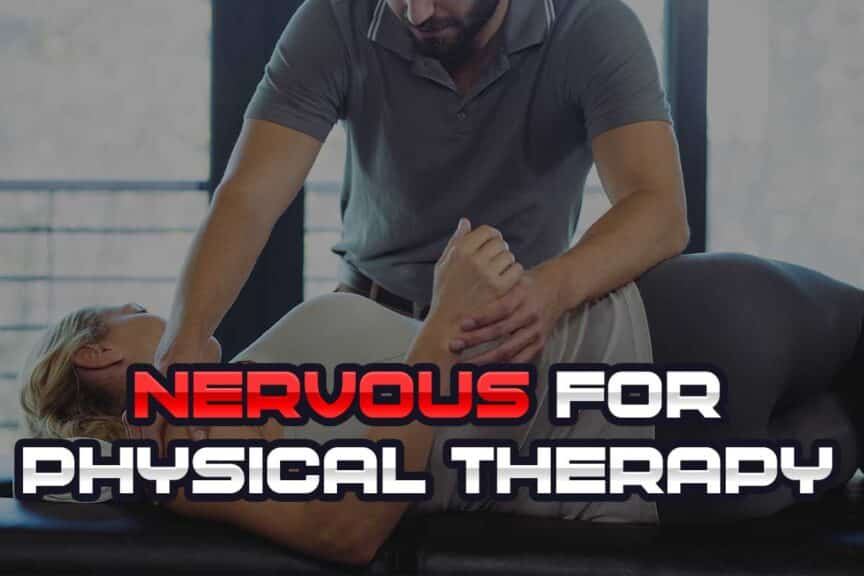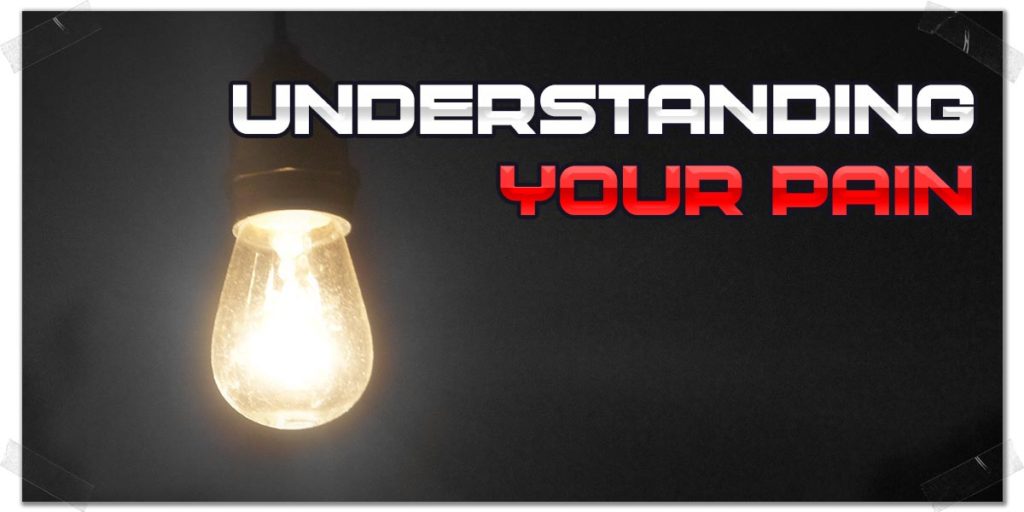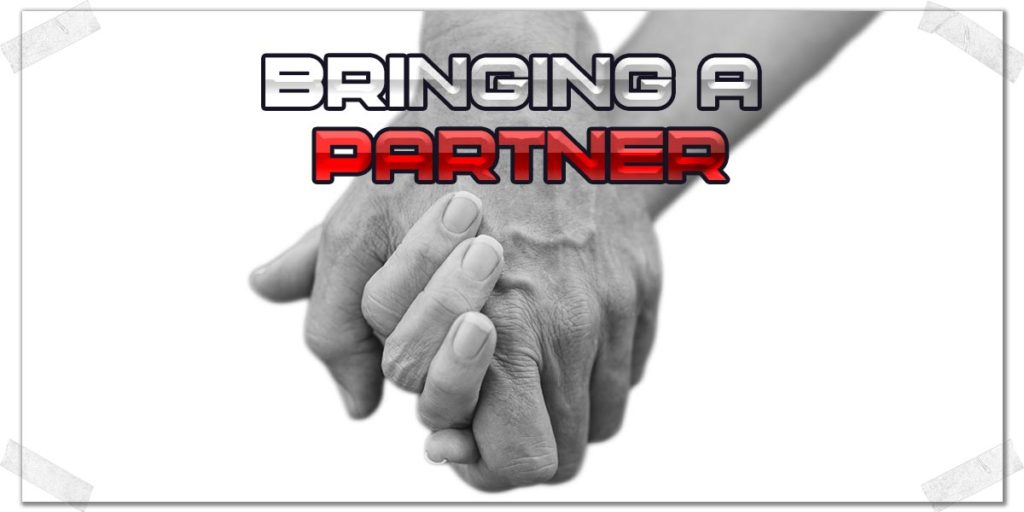Physical therapy is an incredibly diverse profession, and it can evoke different thoughts and emotions in individuals based on what they’ve heard about physical therapy, what they’ve read, or even what they imagine it to be.
And since people go to physical therapy for a near-infinite number of injuries, conditions, or other reasons, the type of treatment each individual receives, how that treatment feels, and their overall experiences can all vary greatly. Some people have good experiences while others have negative experiences, for whatever the reasons may be. As a result, it can be difficult to know what to expect or what your physical therapy experience may be like.
If you’re nervous about going to physical therapy, consider writing down all the questions you have for your physical therapist, give yourself permission to be brave, and bring a friend or loved one to your session. Doing so can greatly reduce apprehension and help create better outcomes.
So if you find yourself nervous about the thought of going to physical therapy — for whatever the reason or reasons might be — I’d like to let you know that it’s valid and that a good physical therapist will acknowledge this while helping you put those anxieties at ease. In the meantime, I’m hoping that some of the following insight around being nervous will help ease some of the nerves or apprehensions that you may have.
ARTICLE OVERVIEW (Quick Links)
Click/tap on any headline below to instantly read that section!
Tip 1: Write down your questions
Tip 2: Permission to be brave
Tip 3: The therapeutic alliance
Tip 4: Not all hurt equals harm
Tip 5: Bringing a partner or friend
Tip 1: Write down your questions
If you’re heading to physical therapy for some aspect of rehabilitation after an injury or for a particular condition that you have, you may find that you have a lot of questions. Whether these are questions about what has happened since your injury or condition took place, what the recovery process looks like, why you’re experiencing pain or discomfort, or anything else, your physical therapist knows that these (among many others) are common questions that patients have.
Related article: How to Prepare for Your First Physical Therapy Appointment
Arguably, our most important job as physical therapists is to educate our patients. Education is absolutely everything when it comes to injury recovery and improvement of your condition. A basic understanding of a patient’s injury or condition has been shown in scientific literature to improve their outcomes in multiple ways, such as helping to reduce feelings of perceived helplessness, preventing catastrophization of one’s thoughts, and even helping decrease pain.
So, a great place to start with helping you feel more comfortable with getting ready for physical therapy is to write down any questions you may have — especially the ones you believe are making you feel the most apprehensive. Whatever the question is, I’d encourage you to write it down.
Whether it’s for questions pertaining to you specifically, the process of therapy, or anything else, getting your questions answered can help put you more at ease and initiate the therapeutic process. Starting your recovery by getting your questions answered can be a truly comforting feeling. I’m sure that many of my patients would attest to this as I see it constantly with those I treat.
Don’t think it weird or silly to write a list of questions down and ask them to your therapist one by one. Many of my patients do this, and I often find that I can tell they’re feeling more at ease after asking them and gaining a better understanding of the overall process of recovery.
Tip 2: Permission to be brave
Now, I can’t tell you what physical therapy will be like for you since so much of the treatment and recovery process depends on your injury or condition; there are a near-infinite number of factors that are unique to you and your situation. But I would encourage you to acknowledge how you’re feeling and give yourself permission to be brave.
The road to recovery is not always easy, but if you’re willing to remind yourself that there is something to be gained from the process — be it physical healing, mental strengthening, knowledge acquisition, or any other positive aspect — you will walk away uniquely qualified to help others in the same circumstance down the road. Keep that in mind.
And I would gently remind you that if you’re going to go through the process of recovery, you might as well get something out of it so that you can not only benefit from it, but so that you can also share it with the world as a result. It’s entirely possible that later on in life, you will come across someone going through the same injury or similar circumstance that you did, at which point you can speak life into them through the unique qualification you have after having gone through it yourself.
I’d also like to encourage you not to put pressure on yourself when it comes to worrying that your physical therapist might see you in an emotional state. Pain and physical disability or dealing with a challenging condition can be incredibly disheartening.
As a physical therapist, I’m very aware that I may not be seeing you at your best, and that’s just fine. Any good physical therapist will be aware of this and won’t pass judgment on you if or when you’re having a rough day, be it physically or emotionally. So just breathe and know that we see these things all the time; trust me, we’re humans too, so we get it.
Tip 3: The therapeutic alliance
Now, when it comes to the actual physical therapist who will be treating you and guiding you along your road to healing, I’m certainly hoping that you feel that they are the perfect fit for you. The right therapist makes all the difference when it comes to feeling at ease during your session and feeling confident in the overall rehabilitative process.
Related article: Find The Best Physical Therapist For You With These Tips
If you can feel or develop a sense of trust with your therapist, your outcomes will likely be a lot better, and your treatment sessions will be much more enjoyable.
This therapeutic alliance, as we call it, can not only make the overall process a much more positive experience but also one that is much more meaningful. The end result of this strengthened alliance is achieving quicker and more complete healing.
But if you genuinely don’t feel like your physical therapist is a good fit for you, or that they might not have your best interests, it’s ok to seek another therapist if that’s an option for you. Yes, doing this can be a bit more time and energy-consuming, which makes it a bit frustrating, but if you truly don’t feel that your therapist is a great fit (for whatever reason), don’t be afraid to seek out another one.
This even happens with me in the clinic; there are times when I feel that a patient I’m seeing might experience better results with another therapist in our clinic, might enjoy their treatment styles more, or might even just be more comfortable with them.
No one therapist is the right fit for every patient who walks through the doors, and I’m certainly no exception.
As a result, if I feel that a patient would like to be treated by another therapist, or they request trying treatment with another therapist, I’m more than happy to set them up with someone else, because it’s not about me; it’s about the patient.
Tip 4: Not all hurt equals harm
If you’re worried about experiencing pain during treatment, ask your therapist what the overall recovery process will look like and what type of treatment may be involved. Pain can be an indicator of many different things, but it may help you to know that not all hurt equals harm.
Related article: Feeling Worse After Physical Therapy? What to Know (A PT Explains)
To be clear, there are plenty of times when pain is not ideal. Still, it may surprise you that pain or discomfort can often be an indicator that healthy changes are taking place in your body and that healing is underway!
This is critical information to know, as having this understanding can prevent catastrophization, which can cause further anxiety and can even cause the body to become more sensitive to undesirable pain.
Pro tip: Ask your physical therapist to explain what your pain means, why it’s occurring and whether or not it’s favorable. The more educated you are on your pain, the less anxiety you’ll likely have. As a result, it should make your treatment sessions much more enjoyable or, at least, tolerable.
It gets better as time goes on
While pain or discomfort is sometimes experienced during physical therapy, it may help to know that the most painful or physically uncomfortable treatment sessions tend to be at the very start of your recovery — as you physically heal and regain your functional abilities, the tissues within your body become healthier and become less painful during treatments and exercises. So, it might just be that the most uncomfortable part of therapy will be at the very beginning.
And thankfully, there’s rarely any justifiable reason for your therapy to consist of extremely high levels of pain or discomfort. As therapists, we often can use different treatment techniques to help the body heal, so we’re rarely stuck with one single intervention (though some might be more or less ideal than others). This means that if there’s one particular treatment technique you really want to avoid, your therapist can likely attempt a different technique or modality if it helps to minimize your pain.
Tip 5: Bring a partner or friend
Another helpful tip I’d like to suggest is to bring a loved one or a friend if you feel that it will help put you at ease.
As long as we have your consent to perform the treatment session with them being present, we’re more than happy to do so. And this can be beneficial not just for yourself, but for them as well.
Whether it’s your partner, a family member or anyone else you confide in, this can be a great move to make, and it’s one that plenty of patients opt for, be it due to nerves or for other reasons.
What’s great about this is that they can also ask questions on your behalf, acting as an extra set of ears to help you remember any specific insight or information discussed during the treatment session. This can help you to get more out of each session.
This is something that many of my patients do, be it only for the initial evaluation or for all of their follow-up sessions afterwards. Partners or friends who attend the therapy sessions can focus on the finer details if need be, allowing you to focus on relaxing a bit more without trying to take in all of the information that may be provided or discussed.
In addition to this, bringing a loved one with you is a great way for them to be enlightened with any particular questions they may have. I find that partners or loved ones often have questions about how they can help provide better care and what to expect for the individual’s recovery process.
So, if it helps put you at ease to bring a companion along to your therapy, as physical therapists, we’re all for it!
Final thoughts
And above all else, know that you are absolutely worth it. I wish I could instantly snap my fingers and make you better so that you don’t even have to think about therapy. Still, since I can’t do that, perhaps the next best thing I can do is to let you know that if you can dig deep and give this physical therapy thing a shot, you’ll walk away uniquely qualified to speak life into others who will one day be in the same or very similar circumstances that you are currently in.
So breathe deep and know that good things happen when you’re brave. And keep in mind that going to physical therapy will help not only yourself but also those you meet in the future whom you’ll be able to speak life into for their own situation. If they’re nervous, you’ll be able to bring them comfort through your own story. And when it comes to healing, there’s power in a good story.

Hi! I’m Jim Wittstrom, PT, DPT, CSCS, Pn1.
I am a physical therapist who is passionate about all things pertaining to strength & conditioning, human movement, injury prevention and rehabilitation. I created StrengthResurgence.com in order to help others become stronger and healthier. I also love helping aspiring students and therapists fulfill their dreams of becoming successful in school and within their clinical PT practice. Thanks for checking out my site!





